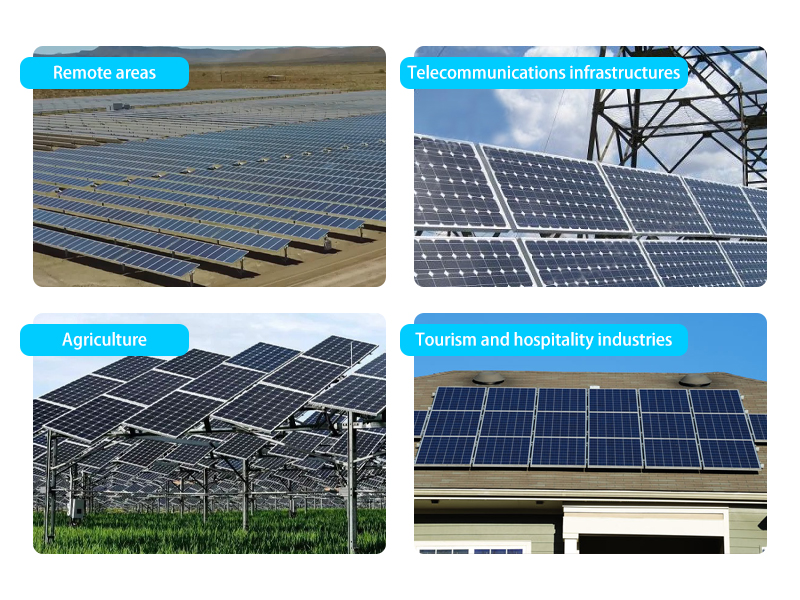Off-grid solar systems have revolutionized the way we use solar energy. These systems are designed to operate independently of the traditional grid, making them an ideal solution for remote areas, off-grid homes, and businesses. As technology advances and costs decrease, off-grid solar systems are becoming increasingly popular and widely used. From powering remote communities to powering recreational vehicles, off-grid solar systems provide sustainable and reliable energy. In this article, we will explore the various applications of off-grid solar systems and the benefits they bring.
Off-grid solar systems are often used in remote areas where traditional power grids are limited or non-existent. These systems provide a reliable source of power to off-grid homes, cabins, and remote communities. By harnessing the power of the sun, off-grid solar systems can generate electricity to meet the energy needs of these locations, allowing residents to enjoy modern conveniences such as lighting, cooling, and communications equipment. Additionally, off-grid solar systems can be combined with energy storage solutions such as batteries to ensure continuous power even during periods of low sunlight.
Another important application for off-grid solar systems is powering telecommunications infrastructure. In remote areas where establishing a connection to the grid is impractical, off-grid solar systems are used to power battery towers, radio transmitters, and other communications equipment. This ensures that people living in these areas have access to reliable communications services, which is critical for security, emergency response, and economic development.
Off-grid solar systems are also widely used in agriculture. Farmers and ranchers often operate in remote areas with limited grid access. Off-grid solar systems can power irrigation systems, lighting in barns and outbuildings, and other electrical equipment necessary for agricultural operations. By harnessing the power of the sun, farmers can reduce their reliance on fossil fuels and lower operating costs while reducing their impact on the environment.
Off-grid solar systems are also used in the tourism and hospitality industries. Remote hotels, eco-resorts, and RVs often rely on off-grid solar systems to power lighting, heating, and other amenities. These systems enable businesses to provide comfortable accommodation and services in remote areas without the need for expensive and environmentally damaging diesel generators.
In addition to these applications, off-grid solar systems are also used in disaster relief efforts. When natural disasters such as hurricanes, earthquakes, or floods strike, traditional power grids are often disrupted, leaving communities without power. Off-grid solar systems can be quickly deployed to provide emergency power, lighting, and charging facilities to help support disaster relief efforts and improve the quality of life for those affected by disasters.
The benefits of off-grid solar systems are many. First, they provide clean and renewable energy, reduce dependence on fossil fuels, and lower greenhouse gas emissions. This is particularly important in remote areas where traditional energy sources are limited and the environmental impact of diesel generators can be significant. Off-grid solar systems also provide long-term cost savings because they require minimal maintenance and can last up to 25 years or more. Additionally, these systems provide energy independence, allowing individuals and communities to control their electricity supply without relying on external power suppliers.
As technology continues to advance, off-grid solar systems are becoming more efficient and affordable, making them an attractive option for a variety of applications. Innovations in solar panel design, energy storage solutions, and power management systems have improved the performance and reliability of off-grid solar systems, further expanding their potential applications.
In summary, off-grid solar systems have a wide range of applications, from powering remote homes and communities to powering critical infrastructure and supporting disaster relief efforts. These systems provide sustainable and reliable energy with numerous environmental and economic benefits. As the demand for clean and renewable energy continues to grow, off-grid solar systems will play an increasingly important role in meeting the energy needs of remote and off-grid areas.
If you are interested in off-grid solar system applications, welcome to contact us.
Post time: Apr-19-2024


